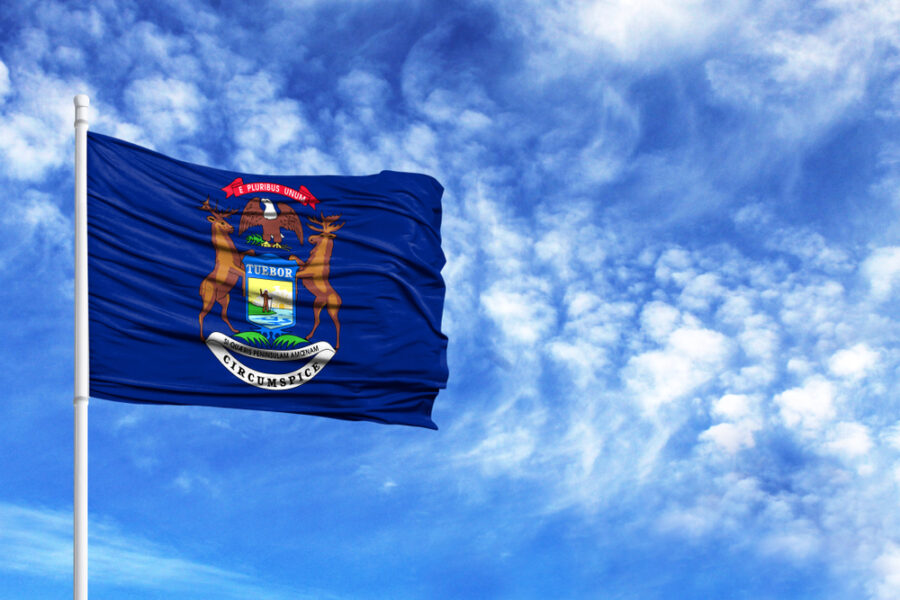Michigan icasinos see revenue rise 33.5% year-over-year in September

Michigan icasinos generated US$243.4 million in revenue in September, a 33.5% increase year-over-year from US$182.3 million.
The latest report from the Michigan Gaming Control Board showed that of the 14 icasinos, three saw revenues decline, 10 saw revenues rise and SI casino ceased operations this year.
The highest year-over-year revenue increase was recorded by Fanatics, whose revenue increased 158.6% from US$5.1 million to US$13.3 million. BetPARX saw similar gains, with revenue increasing 107.9% from US$1.9 million to just less than US$4 million.
FanDuel generated the highest revenue in September, totaling US$65.6 million, up 54.3% year-over-year. BetMGM, which generated the highest revenue in September 2024, saw revenue increase 28.9% year-over-year to US$61.9 million this year.
Hollywood also experienced double-digit gains, with revenue rising 84.2% from US$3.9 million to US$7.3 million, along with BetRivers, which saw a 69.9% revenue increase from US$11.1 million to US$18.8 million.
FourCasino saw the most significant loss year-over-year, with revenue dropping by 51.6% from US$3.7 million to US$1.8 million. PokerStars saw a double-digit loss, with revenue declining 29.4% from US$2.3 million to US$1.6 million.
Abi Bray brings strong researching skills to the forefront of all of her writing, whether it’s the newest slots, industry trends or the ever changing legislation across the U.S, Asia and Australia, she maintains a keen eye for detail and a passion for reporting.
Verticals:
Sectors:
Topics:
Dig Deeper
The Backstory
A year of momentum in Michigan
Michigan’s online casino market has strung together months of double-digit gains, and the latest jump underscores how quickly the state’s digital gambling economy has scaled. The Michigan Gaming Control Board’s September figures reflect broad-based growth across most operators, punctuated by share shifts among heavyweights and fast-climbing challengers. That trajectory did not emerge overnight. It follows a year shaped by seasonality, new product pushes, operator consolidation and a maturing regulatory regime that is increasingly central to the state’s tax base.
Early in the year, the sector was already outpacing 2024. Online gaming adjusted gross receipts in February reached $209.1 million, up 23.6% year over year, even as revenue cooled 10.3% from January’s hot start. The pattern, captured in reporting on February’s receipts, set up a familiar cadence: softer months after the new year as promotional intensity fades, followed by spring and summer stabilizing the base and fall delivering another step up as engagement deepens.
Against that backdrop, September’s leap is part of a broader climb in which market leaders defend scale while midtier brands either carve out niches or retrench. That mix has strategic and fiscal stakes for Michigan. The structure of internet gaming taxes channels sizable funds to education and responsible gaming, making sustained growth more than a headline number.
Seasonal swings, sticky players and the tax pipeline
Michigan’s seasonality has been visible for two straight years. February’s unit economics were telling: while gross receipts rose to $222.5 million from the prior year’s record, sportsbooks’ handle fell to $379.8 million from $402.6 million as football season wound down. Yet online casino revenue held firm, which hints at stickier cross-sell into slots and table games once sports calendars thin. The February readout also detailed $43.8 million in online gaming taxes and $1.5 million from online sportsbooks, with proceeds routed across statutory funds including the School Aid Fund and the Compulsive Gaming Prevention Fund. That pipeline has grown alongside revenue, tying September’s surge directly to state coffers.
The cadence matters for operators too. Sports betting’s month-to-month volatility makes iGaming a stabilizer. The Michigan regulator licenses the major sportsbook brands, but the financial fulcrum for many remains online casino. Consistent casino play helps smooth the troughs between sports seasons and allows operators to manage promotional outlay without sacrificing share.
June’s acceleration foreshadowed the fall
Momentum sharpened in midyear. In June, adjusted gross receipts across online operators climbed to $256.5 million, up 88.1% year over year. Within that, iGaming contributed $226 million, a 37.3% jump, while internet sports betting AGR reached $30.5 million. The month offered a preview of the step-change visible by September and showed how far the market had advanced from 2024 baselines. The June snapshot also highlighted mix effects: year-over-year growth was strong, but iGaming AGR dipped 4.3% from May and sports betting slid 14.4%, a reminder that sequential moves can diverge from annual gains during the summer lull.
Even so, tax contributions followed suit. Operators sent $48.9 million in state taxes and payments in June, including $47.1 million from iGaming, while tribal operators delivered $5.8 million to their governing bodies. That level of remittance indicated the base was not just larger but also more productive per promotional dollar than a year earlier.
Operator jockeying and a national lens
At the operator level, Michigan’s leaderboard has been dynamic. National brands with deep product sets and live dealer depth have sustained outsize share, while fast-growing entrants have leveraged technology upgrades and cross-state marketing to capture incremental wallet share. Those shifts are consistent with national earnings signals. Entain, co-owner of BetMGM, reported full-year 2024 net gaming revenue of £5.2 billion, up 7% year over year, and said BetMGM generated $2.1 billion in 2024 revenue, also up 7%. That performance, outlined in Entain’s results, underscores how U.S. iGaming and online sports betting have become core to international operators’ growth plans, with brand investment and product breadth feeding state-level share battles like those in Michigan.
Market dynamics in neighboring and smaller states reinforce the theme. In February, Kansas sportsbook revenue jumped to $23.9 million from $3 million a year earlier, with DraftKings and FanDuel leading gains as handle topped $209.5 million. The Kansas figures show operators converting promotional activity into higher hold and more efficient revenue even as settled wagers rose modestly. In Wyoming, January gross gaming revenue rose 8.8% year over year to $2.8 million, with DraftKings dominating handle and Fanatics continuing its rollout. The Wyoming update highlights how new platforms can scale quickly once live, a pattern that has played out in Michigan’s casino ranks, where switching between tech stacks and rebrands have preceded growth spurts for certain brands.
The through line: scale and product depth matter, but momentum can shift as companies modernize apps, expand content libraries and deploy targeted promos. Michigan’s September table shows both steady incumbents and surging challengers, an expected outcome when competition hinges on live dealer quality, exclusive slots, jackpots and VIP retention.
What the September jump signals
September’s year-over-year surge signals maturation in player value, not just acquisition. Higher recurring play, more time on site and improved monetization across table and slot portfolios tend to lift revenue without proportionate increases in marketing expense. That mix should flow through to taxes and to operator margins into the fourth quarter, when sports calendars overlap and cross-sell peaks.
It also raises the stakes for responsible gaming controls. As volume rises, so does the importance of data-driven safeguards and clear self-exclusion pathways. Michigan’s statutory distributions to prevention funds track with revenue, meaning the state’s policy levers scale with the market. Regulators have pushed for tighter compliance and clearer disclosures, and operators have an incentive to keep controls ahead of growth to avoid interruptions or fines that can erode momentum.
What to watch next
Three threads bear watching. First, whether fall seasonality converts September’s lift into a higher plateau through year-end. Second, whether midtier operators can sustain double-digit gains amid intensified product launches by larger rivals. Third, how national strategies filter down: Entain’s continued push to optimize BetMGM, Fanatics’ integration playbook and Caesars’ and DraftKings’ content roadmaps will shape share in Michigan.
Quarterly reports and the state’s monthly releases will show if the market can maintain its pace without outsized promotions. If June’s uplift and February’s resilience are any guide, Michigan’s iGaming machine has room to run. The beneficiaries go beyond the brands claiming share. The state’s tax base, school funding and responsible gaming programs are now closely tied to how well this market continues to execute.







